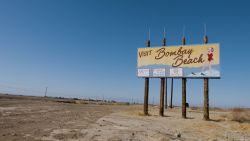Risk Takers 2019: Sometimes a risk works. Sometimes it fails. Sometimes it takes years before you know. See who else made the list.
SpaceX has a booming business launching satellites to space, and 2018 was its busiest year yet. Now the company is pouring money into two audacious investments: a massive constellation of internet satellites and a rocket to Mars.

The projects are the brainchild of SpaceX founder Elon Musk. Overseeing the day-to-day operations at SpaceX, however, falls on the shoulders of president and chief operating officer Gwynne Shotwell. Shotwell is charged with turning Musk’s bold visions into a sustainable business. She juggles the risk behind the scenes.
Launching rockets is high stakes by nature. Many millions of dollars are on the line each time SpaceX lights up one of its 230-foot-tall launch vehicles to send a payload to space. In 2018, Shotwell oversaw 20 flights of SpaceX’s workhorse Falcon 9 rocket. It also debuted a new launch vehicle, the Falcon Heavy, which became the world’s most powerful operational rocket.
But its largest gambles are ahead.
The company wants to build a massive spaceship and rocket system, called Starship and Super Heavy, that would far outpower anything humankind has ever built. Musk hopes to one day use it to start a human colony on Mars.

SpaceX is also in the early stages of developing a constellation of thousands of satellites that could beam cheap, high-speed internet down to Earth.
The projects are expected to cost billions of dollars — as much as $10 billion each, according to Musk and Shotwell. And SpaceX announced in January that it would lay off about 10% of its 6,000-person workforce to save money.
“Either of these developments, even when attempted separately, have bankrupted other organizations,” SpaceX said in a statement when the job cuts were announced.
Shotwell, 55, isn’t as well-known as her billionaire boss. But she has carved out a reputation in the aerospace industry as the levelheaded leader of the most successful commercial rocket company in the world.
Matt Desch, the chief executive of satellite firm Iridium, a major SpaceX customer, said that while Musk can be seen as the risk-taker-in-chief at SpaceX, Shotwell is its key to success.
She puts people in place at launch time; she makes the tough business calls; and when Musk spurs controversy, “she’s the cleanup,” Desch said.
“That’s one of her strengths,” Desch said. “She’s adept at managing a very high-profile boss.”

For example, when SpaceX’s Falcon Heavy rocket finally reached the launch pad in 2018, after years of delays, Musk repeatedly suggested the rocket could explode. “People [came] from all around the world,” he told CNN Business, “to see what will either be a great rocket launch or the best fireworks display they’ve ever seen.”
The casual mentions of a potential explosion spooked one of SpaceX’s customers, Bloomberg reported last year. Shotwell flew to Saudi Arabia to meet with the customer, ArabSat, which had reserved a Falcon Heavy flight, to assure them it would be a reliable vehicle.
“Look, Elon is just trying to set the stage to make sure that people understand that this is a demo flight,” Shotwell told ArabSat executives. “We are not going to lift off if we actually think the probability is as bad as 50-50.”
Despite the apparent challenges of working for Musk, when asked about him, Shotwell consistently replies: “I love working for Elon.”
Shotwell isn’t a stranger to risk: she left a steady position at the Aerospace Corporation, where she worked for a decade, to take a job in the startup world.
In 2002, Shotwell, an engineer by training, became SpaceX’s first head of business development and its seventh employee.

Steve Isakowitz, CEO of the Aerospace Corporation, was at NASA when Shotwell and Musk came to the space agency looking for early funding. SpaceX was virtually unknown at the time and had yet to launch a rocket into orbit. But Isakowitz said he was so impressed by Shotwell’s sales pitch, he told them he would “write them a check right now if I could.”
“In those early days of getting that first rocket to work, there was a lot of people saying they can’t do it,” he said. “I give Gwynne a lot of credit.”
More from Risk Takers 2019
Shotwell later helped SpaceX land massive contracts with NASA “that kept SpaceX alive during its leanest years,” Musk biographer Ashlee Vance wrote. And she “managed to sell about a dozen flights to a mix of government and commercial customers before SpaceX put its first [rocket] into orbit.”
SpaceX is currently one of the highest-valued private firms in the world at $30.5 billion.
It has a solid book of customers — from the public and private sectors — lined up to send satellites or other payloads into orbit aboard SpaceX’s workhorse Falcon 9 rocket. SpaceX is also due to start flying NASA astronauts to the International Space Station as soon as this summer, which will mark the first human spaceflight in company history.
Shotwell, for her part, is not worried about SpaceX’s ability to execute on any of its bold promises.
In a recent interview with Marketplace, she said she was confident that, a decade from now, SpaceX will be “taking people regularly to and from Mars.”
More from Risk Takers 2019: A horrific school shooting was the last straw for the CEO of Dick’s Sporting Goods




















